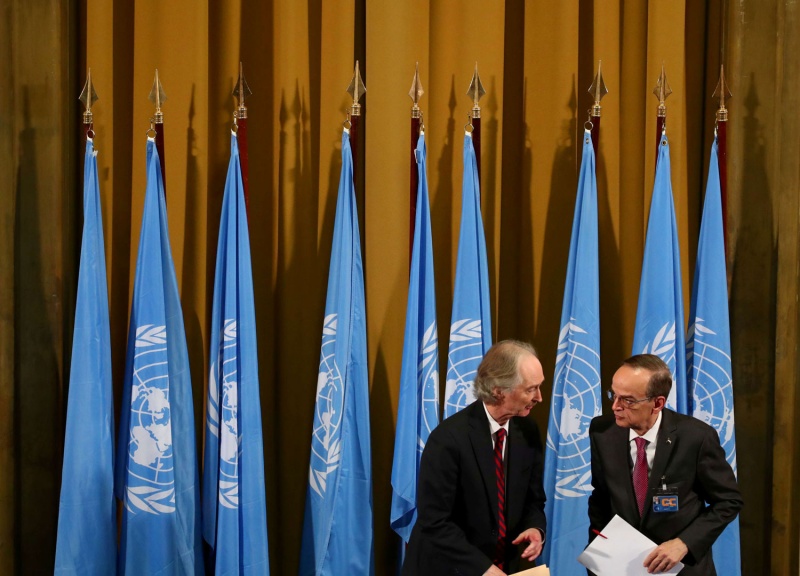Views on back to Astana following Syrian Constitutional Committee failure
ISTANBUL, Turkey (North Press) – The work of the fifth round of the Constitutional Committee concluded in the Swiss capital, Geneva, on Friday, without achieving any progress.
Different views emerged by Syrian opposition members and a Russian analyst regarding a return of the political process to the Astana path.
During a press conference held on Friday, the co-chair of the Constitutional Committee Hadi al-Bahra said, “Prolonging the Constitutional Committee’s work leads to prolonging the Syrian people’s sufferings.”
“We informed all countries that we reached a level where our efforts are no longer enough to keep the committee alive,” he added.
Al-Bahra called on the Security Council to implement the UN resolution 2254 and set a timetable for that.
“We look forward to the states of Astana to present proposals in the upcoming meeting which enable the special envoy to accomplish his mission.”
Zero results
Since Sochi, Astana, and Riyadh2 are the introductions that led to the creation of the Constitutional Committee, it is a natural consequence to witness a zero result,” a Syrian opposition figure, who preferred to stay unnamed because he is residing in Turkey, told North Press.
“All these introductions are the bases for the Russian approach between the outcomes of Geneva and the Resolution 2254, which Russia emptied of their content and turned them into a mess and passing of time,” he added.
Russia aims to “seize lands, reproduce the regime, and rehabilitate Bashar Assad, according to the opposition source.
“At the end of the fifth round, the government delegation rejected ten constitutional articles that were presented by the opposition, accusing their issuers of seeking the continuation of the civil war,” president of the International Center for Political Analysis and Forecasting based in Moscow, Denis Korkodinov, told North Press.
Negative circumstances
“The decision to disrupt the Constitutional Committee followed the continuous escalating conflict in Ain Issa and the ongoing confrontation between the opposition and government forces in Daraa,” Korkodinov added.
He stated that, these circumstances have negatively affected the possibility to hold the negotiations in Damascus, which considered the opposition’s behaviors as a flagrant violation to the agreements regarding a unified constitution.
He noted that the non-conforming position of the negotiators is largely due to the current paradox among Moscow, Ankara and Tehran.
Russian, Turkey and Iran intended to resort to the negotiations in order to reach a middle ground among them, according to Korkodinov.
He believes that the three countries will not be able to revive Astana process as a result of the failure of Geneva negotiations.
On Friday, the UN Special Envoy for Syria, Geir Pedersen officially announced the end of the negotiation process, describing it as “disappointing.”

